Publications
Articles, publications, books, tools and multimedia features from the U.S. Institute of Peace provide the latest news, analysis, research findings, practitioner guides and reports, all related to the conflict zones and issues that are at the center of the Institute’s work to prevent and reduce violent conflict.
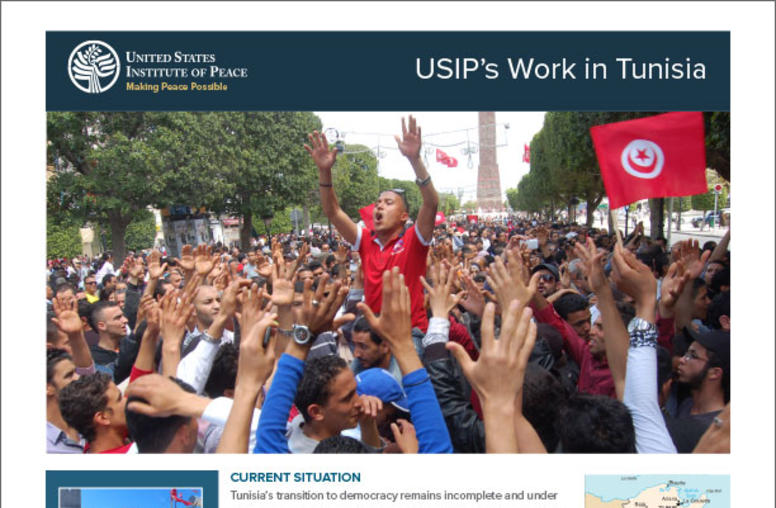
The Current Situation in Tunisia
Tunisia’s transition to democracy remains incomplete and under stress. Since the presidential measures to suspend the parliament, dismiss the government and draft a new constitution were enacted in 2021, socioeconomic conditions have continued to deteriorate, and risks of unrest have increased. Meanwhile, the ambitions of the 2011 revolution for rule of law, accountability, economic prosperity and human dignity are far from being realized. USIP works with Tunisians to improve national and local governance and security, rebuild trust and strengthen civil society.
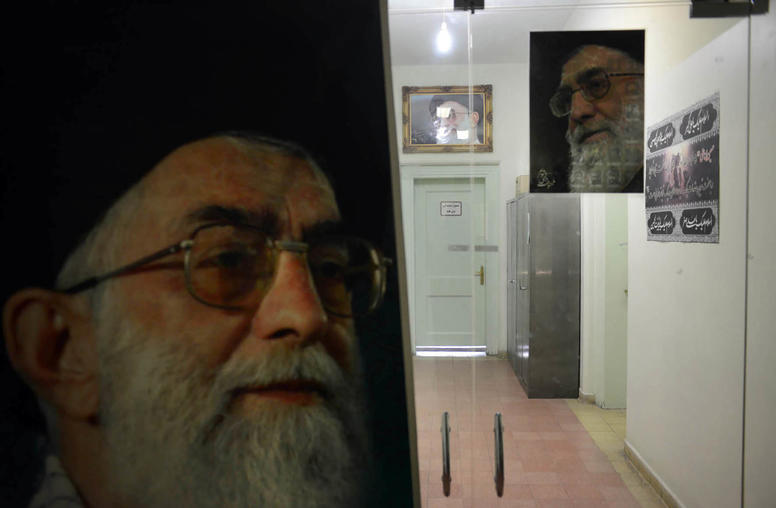
Why Now? The Tortured History of Iran’s Hostage Seizures
In January 1981, I stood at the foot of the Air Algerie flight that flew 52 American diplomats to freedom after 444 days as hostages in Iran. Some of them were my friends. I still remember their gaunt appearances after being caged and cut off from the world for so long as they quietly disembarked. That original hostage crisis was a turning point in U.S. history in the 20th century — and has shaped angry American views of the Islamic republic ever since.
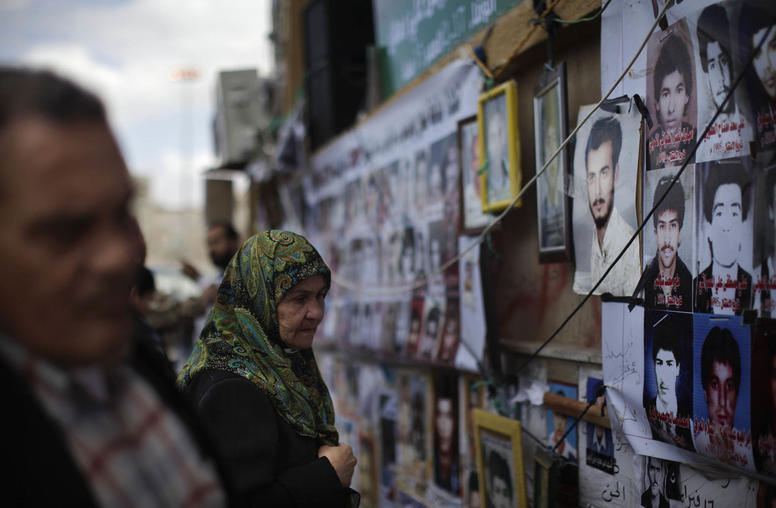
How Commemoration Can Help Unite a Divided Libya
In the al-Washishi district of Benghazi a burnt-out car stands in memorial to a slain Libyan National Army (LNA) special forces fighter, serving as a city-wide reflection of the country’s 2014-2017 civil war. The car belonged to Salem (Afareet) Al-Naili, whose father was brutally murdered, one of the many victims of terrorist violence in the city. Inspired by the personal loss of his father, Salem threw himself into the fighting in the city’s civil war and was ultimately also assassinated.
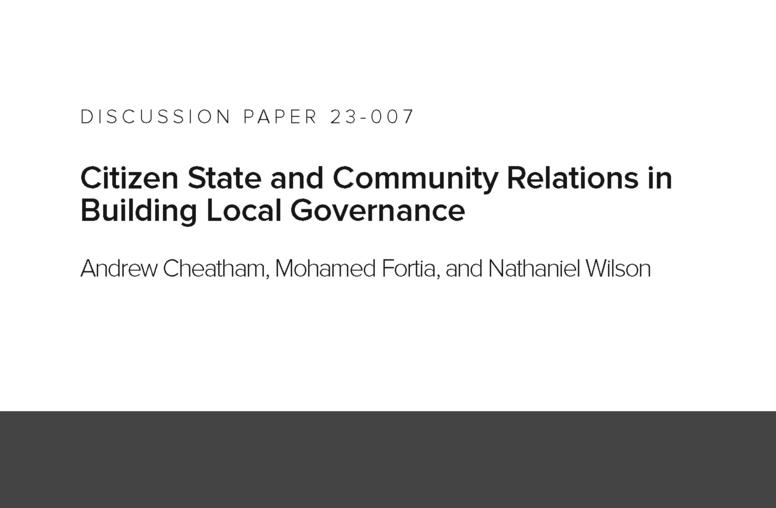
Citizen State and Community Relations in Building Local Governance
Since the revolution in 2011 and the toppling of the long-standing regime of Muammar Gaddafi, Libya has experienced various degrees of political instability and conflict. A succession of internationally supported “transitions” have failed to bring the Libyan people a functioning state with a clear social contract based on a shared vision for the nation. This paper discusses the present challenges for good local governance as perceived by Libyan citizens and institutional actors. Through this lens, recommendations are offered for immediate, short-, and medium-term initiatives that can support the improvement of citizen relations with the three traditional arms of the state—the legislative, executive, and judicial branches.
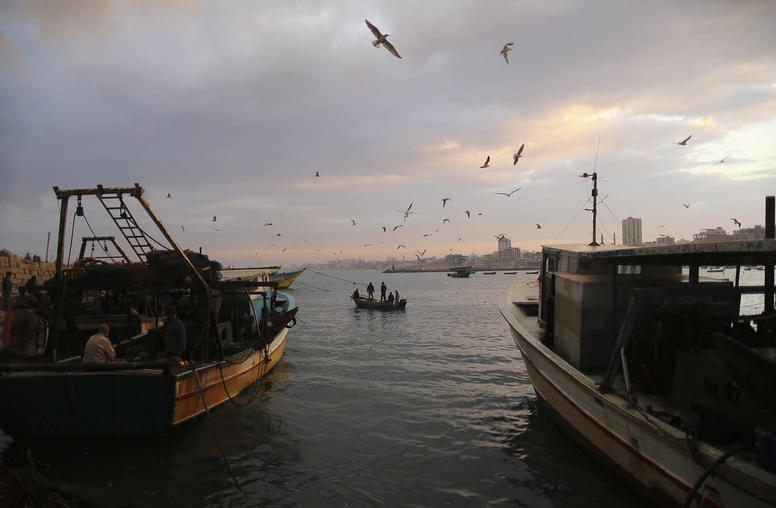
How a Gaza Marine Deal Could Benefit Palestinians, Israelis and the Region
Amid today’s dismal Israeli-Palestinian context, positive developments have been in short supply. However, Prime Minister Benjamin Netanyahu’s June announcement of preliminary approval for the development of the Gaza Marine gas fields provided a rare glimpse of a potential win-win opportunity. For the Palestinians, it could provide a much-needed boost to their lagging economy and the cash-strapped Palestinian Authority (PA). On the Israeli side, it allows the Netanyahu government to claim it is assisting in improving living conditions in Gaza and could lead to less U.S. pressure on issues like settlement expansion. In the big picture, this is another example of how energy is increasingly becoming a focus for potential win-win agreements in the East Mediterranean.
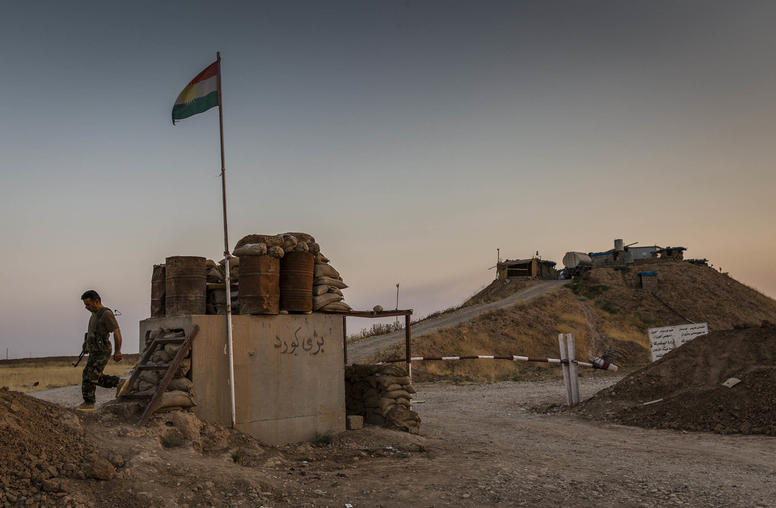
Kurdish Official Lists ISIS and Climate Change as Top Threats
More than five years since the Iraqi government declared victory over ISIS, a senior Kurdish official says the terrorist group is among the top threats facing the region. Alongside ISIS, Rebar Ahmed, minister of interior in the Kurdistan Regional Government (KRG), listed climate change and the resource scarcities and migration it would trigger as a critical challenge.
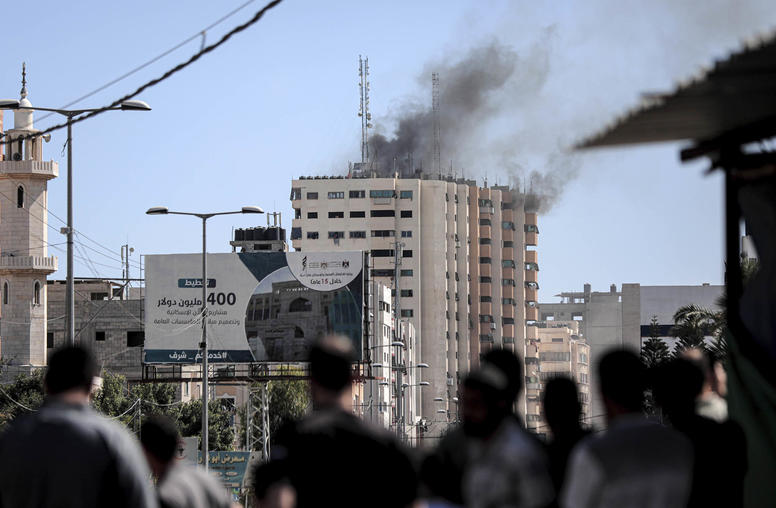
Is China Preparing to Make a Run at Israeli-Palestinian Peace?
Since April of last year, Xi Jinping and China’s foreign policy apparatus have been touting the Chinese leader’s vision of an alternative to the U.S.-led global security order, dubbed the Global Security Initiative (GSI). While Beijing has incrementally elaborated on Xi’s GSI, it remains an inchoate, fuzzy concept. What is clear is that Beijing wants to be seen as a global force for peace and stability that is capable of resolving international issues that appeared intractable under the U.S.-led security order. And it has repeatedly pointed to the detente it brokered between longtime foes Iran and Saudi Arabia as an example of its peacemaking prowess. As China deepens its involvement in the Middle East and campaigns for the GSI, is it gearing up to take on one of the region’s most vexing challenges, the Israeli-Palestinian conflict?
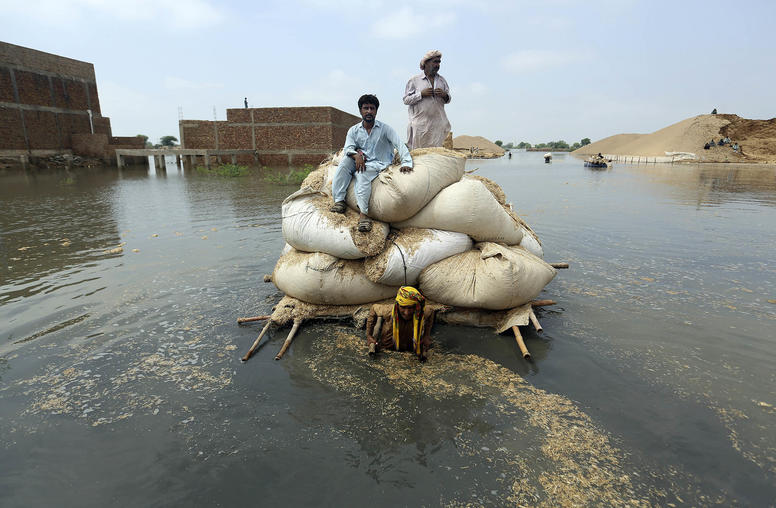
Displaced to Cities: Conflict, Climate Change, and Rural-to-Urban Migration
Countries as geographically diverse as Honduras, Jordan, and Pakistan are experiencing a common challenge—rapid growth in urban populations as conflict and climate-induced disasters push people from rural areas into cities. This report examines the effects of this increased urban migration on both the migrants and the urban environment, as well as the challenges policymakers face. It offers recommendations to help meet the needs of growing urban populations and develop adaptive, resilient systems to better withstand the impacts of climate change and conflict.

Mona Yacoubian on Arab Normalization with Syria’s Assad
Many Arab countries have concluded that President Bashar al-Assad is entrenched power and that they’ll need his cooperation to address challenges like refugees and the illicit drug trade. In Washington, there is no appetite to normalize with Assad. “I think ultimately what we see is just a fundamental tension between the need for accountability and fatigue in the region,” USIP’s Mona Yacoubian says.
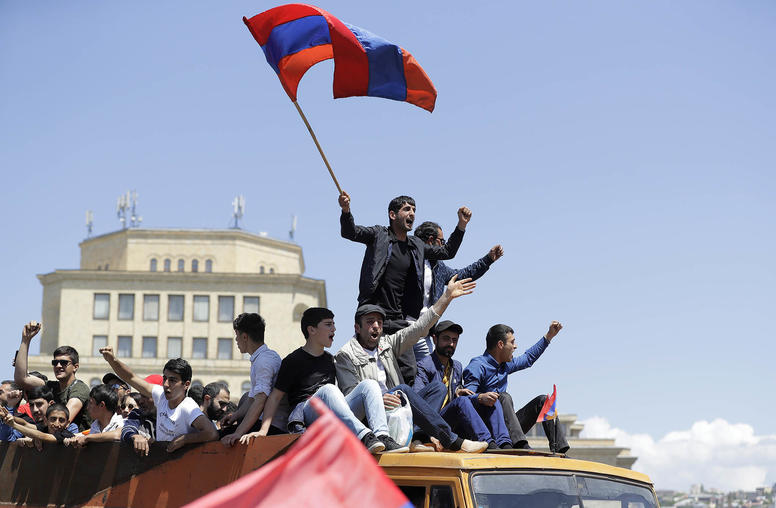
Overcoming the Challenges of Transitional Mobilization
Nonviolent action can be a powerful way to bring about peaceful transitions from autocratic rule to democracy. But even when initially successful, movement leaders often face significant challenges, from frustrations that grievances are not addressed quickly enough to counterrevolutions aimed at restoring the authoritarian status quo. This report examines two recent transitions—the 2011 Jasmine Revolution in Tunisia and Armenia’s 2018 Velvet Revolution—and presents recommendations for improving the likelihood that change initiated through nonviolent action leads to robust and lasting democracy.